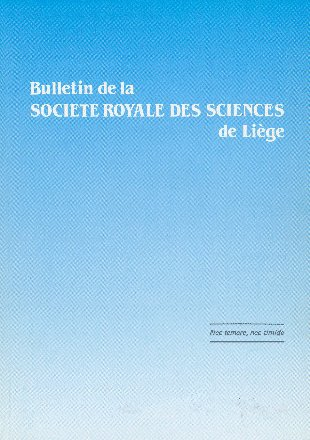- Home
- Volume 87 - Année 2018
- Actes de colloques
- First Belgo-Indian Network for Astronomy & Astroph...
- Scientific Summary of the First BINA Workshop
View(s): 810 (13 ULiège)
Download(s): 71 (1 ULiège)
Scientific Summary of the First BINA Workshop

Attached document(s)
original pdf fileAbstract
Scientific summary of the first Belgo-Indian Network for Astronomy & Astrophysics (BINA) work-shop is presented here. In the workshop, invited talks were supplemented with the contributory talks and poster paper presentations. The talks presented during the workshop provide latest information on the 3.6-m Devasthal Optical Telescope (DOT) and 4-m International Liquid Mirror Telescope (ILMT) projects. These observing fa-cilities are built jointly by the astronomical communities of India and Belgium. In the ILMT, reseachers from Canada, Poland and Uzbekistan are also actively participating. Preliminary results obtained from the on sky test indicate that 3.6-m DOT is capable of resolving binary stars separated by ~ 0.4 arc second. CCD observations obtained with the telescope indicate that atmospheric conditions at Devasthal are very good for optical observations and the site can be considered internationally competitive. Buildings and telescope houses constructed at Devasthal have not deteriorated natural seeing conditions observed at the site ~ 2 decades ago during 1997¬1999. Pointing and tracking accuracies of the 3.6-m DOT are as per specifications. All these indicate that on sky performance of the newly installed 3.6-m DOT is better than the specifications prescribed at the time of placing order. It is therefore capable of providing internationally competitive science with the modern backend instruments and also have global importance due to their geographical location particularly for the time domain and multi-wavelength astrophysical studies. A large number of talks and poster papers presented during the workshop discussed astrophysical potential of the Indian largest size (4 meter class) new technology optical telescopes located at Devasthal. All these indicate beyond doubt that there are enormous opportunities for the growth of astronomy in India.






